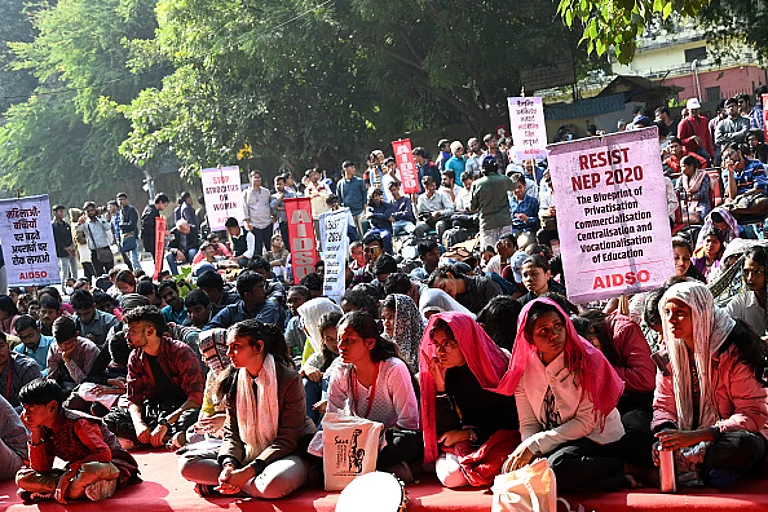Maharashtra Education Minister Dadu Bhuse on Thursday announced that students in Class 1 and 2 will only be instructed on the speaking skills of the third language, with reading and writing components commencing from Class 3 onwards. The decision was declared following criticism over the state government’s proposal to establish Hindi as the official third language in English and Marathi-medium schools.
Maharashtra Revises Three-Language Policy Amid Backlash: All You Need To Know
The implementation of the three-language policy has stirred controversy in some Indian states. States including Maharashtra and Tamil Nadu claim that the policy, despite its claims of fostering multilingualism, would lead to the imposition of Hindi in the region.
“The third language in classes 1 and 2 will be taught and evaluated only for spoken skills. Written skills in the chosen third language will not be introduced until Class 3,” Dada Bhuse said. The remarks came after Maharashtra chief Minister Devendra Fadnavis held a high-level meeting following the revised Government Resolution (GR) issued on June 17.
Why was the Proposal Amended?
The backlash was observed over the aspect that Hindi will “generally” be the third language, if the proposal is implemented. The proposal did allow the students to choose an alternative Indian language instead of Hindi, on the condition that at least 20 people opt for it. The critics argued that this condition effectively imposed Hindi by default.
Addressing a press conference at the Mantralaya, Bhuse said that, “There is no compulsion to learn Hindi as a third language. Students can choose any of the 22 Indian languages.”
“The provision of at least 20 students is only for the administrative purpose of appointing a teacher for that subject. If fewer than 20 students want to study a language other than Hindi, the school can make arrangements through online platforms,” he added.
As per the current norms, Hindi is introduced in Marathi and English-medium schools from Class 5. Bhuse argued that “neuroscience and child psychology suggest that children between ages 2 and 8 have the greatest capacity to learn languages,” and hence it was amended.
What is the Three-Language Policy?
The three-language policy states that every student in India should learn three languages, two of which should be of native origin.
It was first proposed by the Education Commission, officially known as the Kothari commission (1964-66). It was formally introduced through the National Education Policy of 1968 to boost multilingualism and aid in communication across the country.
The National Education Policy introduced in 2020 proposed the early implementation of the three-language formula to foster and boost multilingualism. It differed from the NEP of 1968, which mandated Hindi, English, and a regional language in its scope. The NEP 2020 offers greater flexibility in the three-language formula claiming that no language should be imposed on any state. The policy states that students can learn any three languages as long as two of the three languages are native to India.
The Tamil Nadu controversy
Tamil Nadu has historically been at the centre of the opposition against the three-language policy. The DMK-led state government in Tamil Nadu sees the policy as a covert attempt to impose Hindi on the Tamil-speaking population.
Tamil Nadu’s refusal to implement the key aspects of the NEP has led to the centre withholding Rs 573 crore in central education assistance under the Samagra Shiksha Abhiyan (SSA). According to the rules, states must comply with NEP guidelines to receive SSA funding from the centre. Tamil Nadu receives 60 percent of its SSA funding from the centre.
The state has had a tumultuous history with the three-language formula. In 1937, the Congress government led by C Rajagopalachari compulsorily introduced Hindi in schools. This move sparked widespread protests led by the Justice Party and Dravidian leaders like Periyar. The policy was revoked in 1940, but anti-Hindi sentiments persisted.
In 1968, when the NEP was first introduced, the CN Annadurai-led government adopted a two-language policy, teaching only Tamil and English. Tamil Nadu remains the only state to have never implemented the three-language policy.
